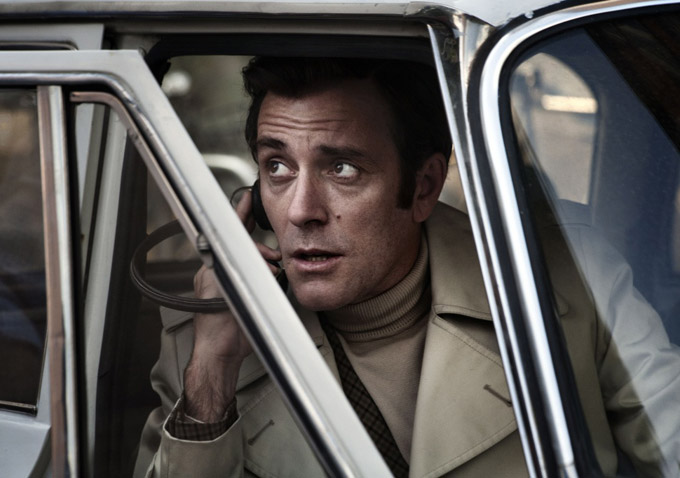 A deserving winner of the Special Jury Prize at the Karlovy Vary International Film Festival, “Piazza Fontana: The Italian Conspiracy (Romanzo di una strage)” is a film so skilfully and stylishly put together, that so easily slots into the familiar "procedural" genre, that it almost left this festival attendee feeling guilty, on two counts. Firstly, in amongst the less accessible, though often equally worthy fare that made up a great deal of the programme, the film was remarkable for its commerciality. And by that we don’t mean to damn with faint praise, simply to state that it’s the kind of film that hardly seems to need festival exposure in order to find its audience. And secondly, ‘Piazza Fontana’ is based on true events — a bomb exploded in the titular piazza in Milan in 1969, killing 17 people — yet the film’s impeccable aesthetic had us more often admiring the tailoring of a jacket than feeling the weight of real-life tragedy.
A deserving winner of the Special Jury Prize at the Karlovy Vary International Film Festival, “Piazza Fontana: The Italian Conspiracy (Romanzo di una strage)” is a film so skilfully and stylishly put together, that so easily slots into the familiar "procedural" genre, that it almost left this festival attendee feeling guilty, on two counts. Firstly, in amongst the less accessible, though often equally worthy fare that made up a great deal of the programme, the film was remarkable for its commerciality. And by that we don’t mean to damn with faint praise, simply to state that it’s the kind of film that hardly seems to need festival exposure in order to find its audience. And secondly, ‘Piazza Fontana’ is based on true events — a bomb exploded in the titular piazza in Milan in 1969, killing 17 people — yet the film’s impeccable aesthetic had us more often admiring the tailoring of a jacket than feeling the weight of real-life tragedy.
But if there is a certain bloodlessness to the way the filmmakers approach the topic, it’s that same careful, considered vibe that serves them well in negotiating the murky, choppy waters of Italian politics in the 1970s. Almost impossibly twisty-turny, we are presented with a picture of a state in which nothing is simply black or white, right or left, good or bad. Within every level of society — from the government, through the police and secret service, and down to the gangs of anarchists, socialists and neo-fascists who meet in dirty back rooms and cellars to talk revolution — idealism wars with pragmatism, and loyalty with betrayal. The arcane political manoeuverings and double dealings continue for more than a decade and remain to a certain degree unresolved to this day, leading to the a downbeat, slightly ambiguous denouement. And indeed, one of the most remarkable aspects of the film, and one that shows a certain, very specific flair on the part of the director (Marco Tullio Giordana) and editor (Francesca Calvelli) is in how very subtly it evokes the passage of such a long period of time, and thus avoids ever feeling fragmentary or stop-start. Somehow the story strands don’t lose urgency or momentum over the long span, but occasional intertitles, evolving fashions and glimpses of Calabresi’s wife in various stages of pregnancy, and the the child itself as a baby, and then an infant, feel entirely unforced and germane to the narrative, while also serving to orient us in time. We can only imagine it must have been one of the trickier aspects to pull off, making it all the more impressive that the resulting film feels so slick and knitted-together.
The story runs as follows: police chief Luigi Calabresi (Valerio Mastrandrea) is put in charge of the investigation into the December 1969 explosion, but finds the task of pleasing his superiors and serving the cause of justice further complicated by the death of a key suspect while he is under interrogation. Over the course of the following decade, the picture that Calabresi begins to discern of the truth of the bombings becomes both more vivid and more involved, as his own position becomes increasingly more compromised and dangerous. In its real-life associations, its heavy reliance on the ins-and-outs of police procedure and its open, somewhat mid-air ending, the film evokes David Fincher’s “Zodiac,” while its almost fetishistic attention to period detail, and its muted, textured interiors also put us in mind of Tomas Alfredson’s “Tinker Tailor Soldier Spy.” While some might wish for a bit more grit, fans of those films, and of cerebral, intelligent, procedural thrillers that do not compromise on the complexity of their political and historical context, will appreciate the film’s meticulous, cool-to-the touch approach. [B+]

